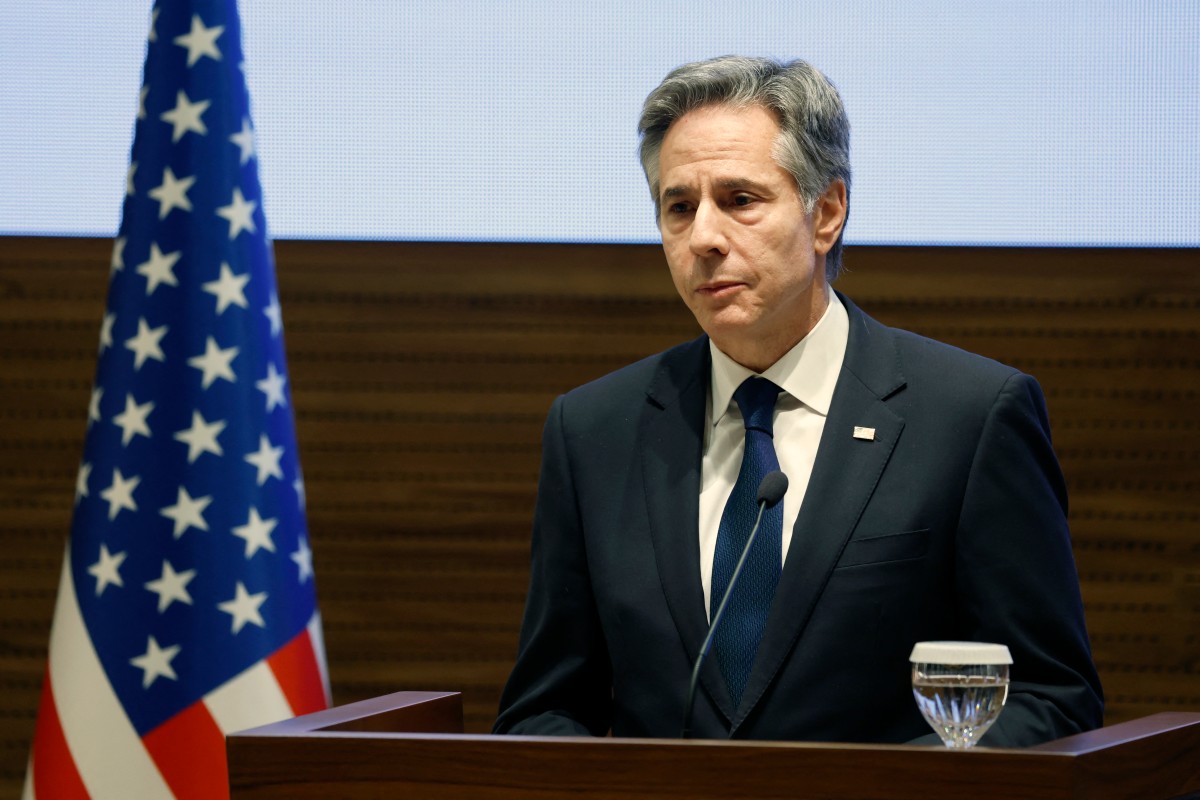Jerusalem, Israel — Israel killed a top commander of Lebanon’s Hizbollah movement, a security source said on Monday, as Washington’s top diplomat visits the Middle East seeking to avert a widening of the Israel-Hamas war.
Israel pounded targets in the Gaza Strip, where a fighter group reported fierce ground combat.
The health ministry in Hamas-run Gaza said it had recorded 249 deaths in the previous 24 hours, dozens of whom arrived along with 99 wounded at Al-Aqsa hospital in central Gaza’s Deir al-Balah city.
Three months into its battle with Hamas fighters, Israel says its focus has moved from northern Gaza to “dismantling” fighters in the centre and south of the Palestinian territory.
While battles rage in Gaza, the situation to Israel’s north is also causing increasing regional and global concern.
Israel and Iran-backed Hizbollah, a Hamas ally, have engaged in regular cross-border fire during the war that began on October 7 with Hamas’s unprecedented attack against Israel.
On Monday, Hizbollah announced the killing of a “commander” for the first time, naming him as Wissam Hassan Tawil.
A security source in Lebanon, requesting anonymity for security reasons, said Tawil “had a leading role in managing Hizbollah’s operations in the south”, and was killed there by an Israeli strike targeting his car.
His is the second high-profile killing in Lebanon since last week, when a strike in a Beirut stronghold of Hizbollah killed Hamas deputy leader Saleh al-Aruri.
A US Defense Department official has told AFP that Israel carried out the strike, which has been a major factor contributing to rising fears of spreading conflict.
‘Fierce clashes’
The Al-Quds Brigades, the armed wing of Islamic Jihad which fights alongside Hamas, reported “fierce clashes” involving machine guns and rocket-propelled grenades against Israeli troops in north, east and central Khan Yunis city of southern Gaza.
Live AFPTV images on Monday showed black smoke over central and southern areas, and the sound of explosions.
Israel’s military earlier reported that troops and warplanes overnight Sunday-Monday struck 30 “significant” Hamas targets in Khan Yunis.
These included underground targets and weapons facilities, it said.
A drone also killed 10 fighters in Khan Yunis “preparing to launch rockets toward Israeli territory”, and Israel hit “numerous Hizbollah targets” in Lebanon, also overnight.
Israel has responded with relentless bombardment and a ground invasion that have killed at least 23,084 people, mostly women and children, according to the Gaza health ministry’s latest toll.
Hostage families in Qatar
On his fourth regional trip since the war began, US Secretary of State Antony Blinken arrived in Saudi Arabia after talks earlier Monday in Abu Dhabi.
Blinken “emphasized the importance of preventing further spread of the conflict”, during talks with United Arab Emirates President Sheikh Mohamed bin Zayed Al Nahyan, a US summary of the meeting said.
He met with Saudi Crown Prince Mohammed bin Salman in the desert city of Al-Ula, a US official said on condition of anonymity. Early in the war, Riyadh said it had suspended talks with Israel on normalizing ties.
Blinken’s visit comes alongside that of other top Western diplomats trying to stop the conflict from spreading and to boost desperately needed aid to Gazans.
On Monday, Palestinian president Mahmud Abbas was in Cairo to meet President Abdel Fattah al-Sisi of Egypt, a mediator in the conflict.
Over the weekend Qatari officials also hosted relatives of captives still held in Gaza, said Ruby Chen, father of 19-year-old captive Itay Chen. The release of more hostages “serves the bigger objective, as they see it, which is creating regional stability”, Chen said back in Tel Aviv.
Qatar earlier helped mediate a one-week truce that saw dozens of hostages freed in exchange for Palestinian prisoners. Talks with Hamas on a new truce are “ongoing”, the emirate’s premier said.
Since October, violence has surged in the Israeli-occupied West Bank, and Yemen’s Iran-backed Huthi rebels have stoked fears of wider conflict with drone and missile strikes towards targets in the Red Sea, a major global trade route, and Israel.
Washington, Israel’s main ally that provides it with billions of dollars in military aid, has grown increasingly concerned over the war’s civilian death toll.
Most of Gaza’s population has been displaced, according to the United Nations, leaving people in overcrowded shelters or tents in the winter chill.
‘No place’ safe
Many have fled to Rafah in Gaza’s far south, where a strike on Monday ripped open a car.
Witness Mohammad Hejazy, overlooking the scene and blood-soaked road, said three people were inside the vehicle and one outside.
“It looked like he was severely injured, and the ambulance took him,” Hejazy said. “They say Rafah is safe, but we don’t see it is safe in Rafah. No place is safe.”
The World Health Organization (WHO) has warned of the risk of famine and disease, with only minimal aid entering as people struggle to find water and other necessities.
Israeli rights group B’Tselem on Monday said “everyone in Gaza is going hungry” as “direct results of Israel’s declared policy”.
Washington has said Blinken will press Israel on its compliance with international humanitarian law and ask for “immediate measures” to boost aid to Gaza.
Al-Aqsa hospital, which received the additional wounded on Monday, is one of Gaza’s few still partly functioning, but on Sunday the UN reported “sickening scenes of people of all ages being treated on blood-streaked floors and in chaotic corridors”.
Rik Peeperkorn, WHO’s representative for the Palestinian territories, told AFP that if he had the chance he would tell Blinken that the “epic humanitarian catastrophe” in Gaza is even “much worse” than that portrayed in the media.
A humanitarian ceasefire is “the only way forward”, Peeperkorn said.








